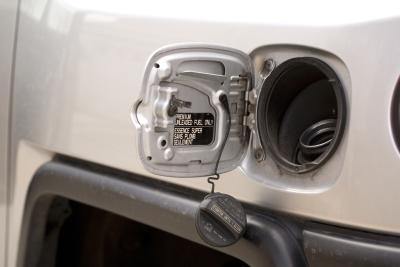
The gas cap on your car is a simple but very important device. If problems develop with the gas cap, you run the risk of decreased engine performance, fuel leakage and poor gas mileage. You should check your gas cap for proper functioning every time you refuel your car, and take action immediately to fix or replace the cap if you notice anything unusual.
The most evident sign of a bad gas cap is a pervasive or powerful smell of gasoline. This can be caused by a number of things, one of which is a missing or improperly sealed gas cap. Take the cap off and put it on again, being sure that it is tight and sealed. If the gas smell persists, check for leaks in your gas tank or fuel line.
Gasoline is a highly volatile substance, and as such is not only very flammable but also evaporates very easily. If your gas cap is missing, improperly screwed on or suffering from a defective gasket, the fuel in your tank can evaporate at a surprisingly rapid rate. If you notice a sudden decrease in fuel efficiency and you haven't altered your driving habits, check your gas cap to be sure that it is present, screwed on properly and in possession of a non-defective gasket.
Newer cars have an inscrutable "check engine" dashboard light that may illuminate for no clear reason. One of the obscure causes for this light coming on could be that your gas cap has ceased to perform its duties. Inspect your gas cap for any visible problems. If you end up taking the car to a mechanic to deal with the "check engine" light, be sure to ask him to inspect the gas cap.